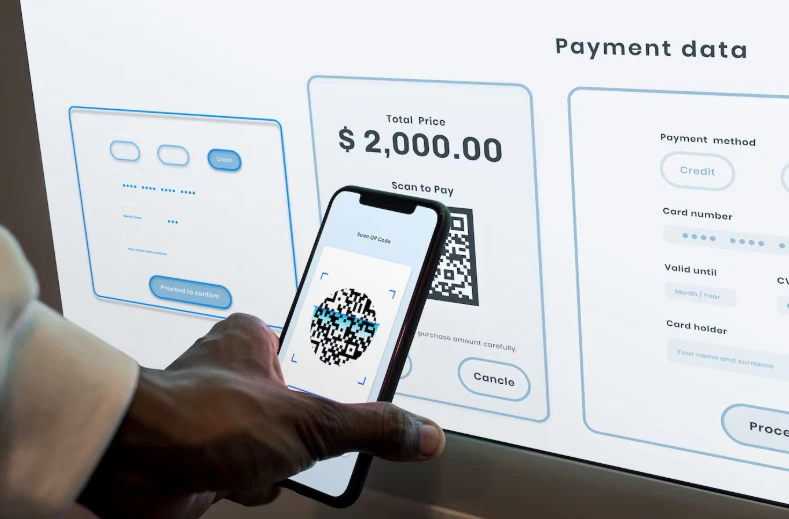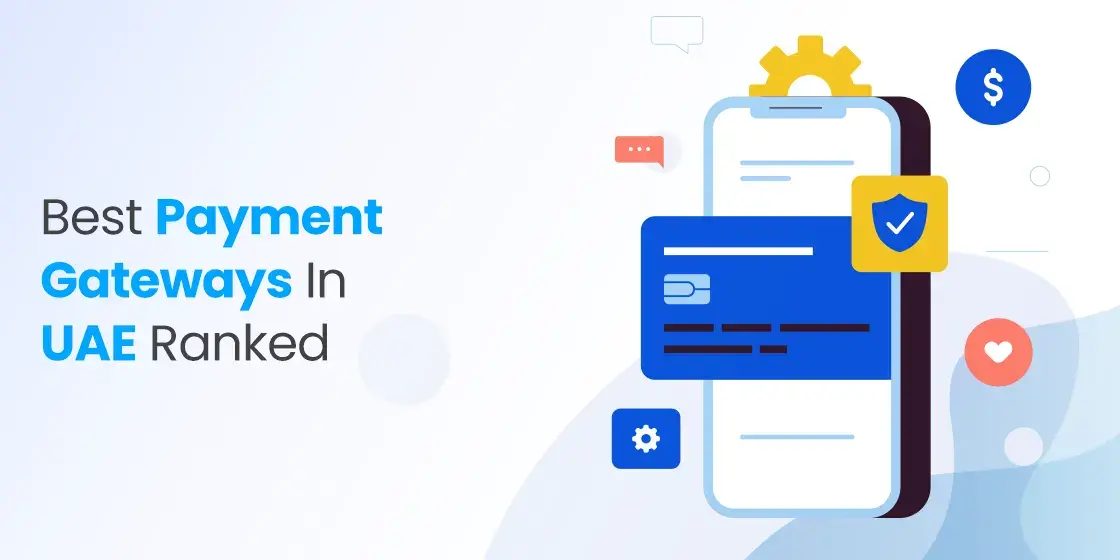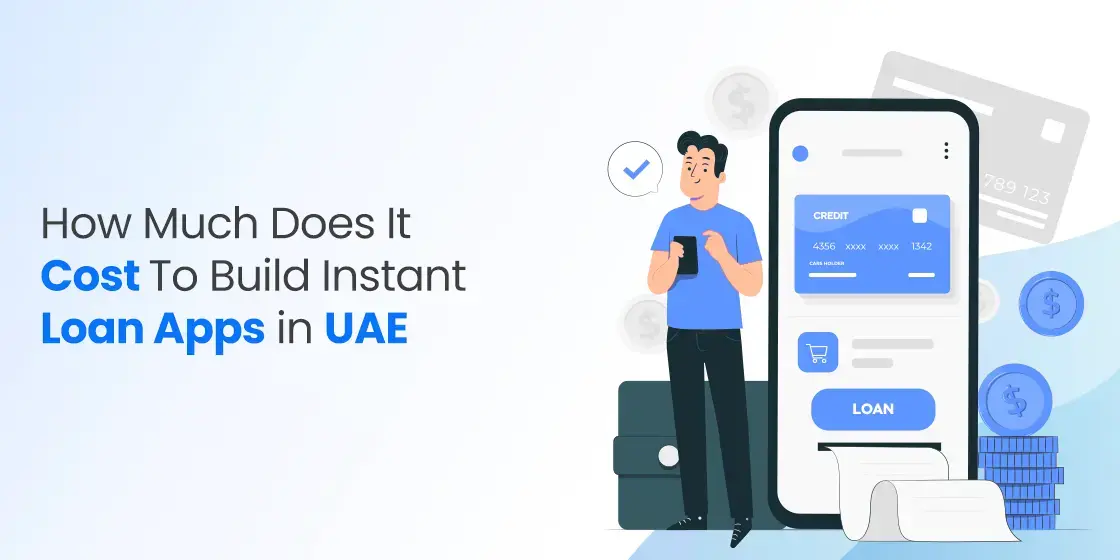Table of Content
Discover the Best Payments Gateways of UAE for Seamless Transactions Today
The UAE’s digital payment landscape has undergone remarkable transformation in recent years. With online transactions expected to reach $28.74 billion in 2025 and e-commerce revenue projected at $13 billion, choosing the right payment gateway has never been more crucial for businesses operating in the Emirates.
The future of this business is bright, with continued innovation, improving infrastructure, and growing consumer adoption. Businesses that make thoughtful payment gateway decisions today will be best positioned to capitalize on the opportunities ahead.
Whether you’re a startup launching your first online store in Dubai or an established enterprise expanding across the Gulf, this comprehensive guide is for you. It examines the top payment gateways that are actually driving success for UAE businesses in 2025—not just the names everyone talks about, but the platforms delivering real results. Discover the top options used by custom software development services today.
The Current State of Digital Payments in UAE

Dubai and the broader UAE have positioned themselves as the Middle East’s fintech hub, with government initiatives pushing towards a cashless society by 2030. This digital transformation isn’t just changing how people shop—it’s reshaping entire business models.
Market Growth That Demands Attention
The numbers tell a compelling story. UAE’s digital payment market has grown by 22% year-over-year, with mobile payments leading the charge. What’s particularly interesting is that 67% of UAE consumers now prefer digital payments over cash, compared to just 34% in 2019.
For businesses, this shift represents both an opportunity and a necessity. Companies that delay implementing robust payment systems risk losing customers to competitors who offer seamless digital experiences. The pandemic accelerated this trend, but it’s consumer preference driving continued growth. And with the current trend in AI innovations in Dubai, this phenomenon is boosted further.
Regulatory Environment and Compliance
The Central Bank of UAE has implemented stringent regulations for payment processors, requiring PCI DSS compliance, local data residency options, and robust fraud prevention measures. These requirements have actually benefited businesses by ensuring higher security standards across all payment platforms.
Additionally, the UAE’s focus on anti-money laundering (AML) and know-your-customer (KYC) regulations means payment gateways must offer advanced verification capabilities—a feature that’s becoming increasingly important for building customer trust.
Best Payment Gateway in UAE – Understanding the Types
Not all payment gateways are created equal, especially in the UAE market where cultural preferences, regulatory requirements, and banking relationships significantly impact performance.
Local vs International Solutions
Local UAE Payment Gateways: These platforms understand regional banking systems, offer Arabic language support, and maintain direct relationships with Emirates NBD, ADCB, FAB, and other major UAE banks. They typically provide faster settlement times and better compliance with local regulations.
International Payment Gateways: Global solutions like Stripe and PayPal offer broader currency support and easier integration with international e-commerce platforms. However, they may have longer settlement periods and higher fees for AED transactions.
Hybrid Approach: Many successful UAE businesses use a combination—local gateways for domestic transactions and international ones for global customers. This strategy optimizes costs while ensuring the best user experience for different customer segments.
Transaction Flow and Settlement Patterns
UAE payment gateways typically offer settlement periods ranging from T+1 (next business day) to T+7 (seven business days). Local banks generally provide faster settlement, while international processors may take longer due to correspondent banking requirements.
Understanding these timelines is crucial for cash flow management, especially for businesses with tight inventory turnover or service delivery schedules, such as the top taxi apps in UAE.
Top Payment Gateways in UAE 2025: Detailed Analysis

Based on current market performance, customer satisfaction, and business adoption rates, here are the payment gateways actually driving growth for UAE businesses in 2025.
1. Stripe (Recent UAE Launch)
Market Position: Global leader recently launched in UAE
Best For: Tech-savvy businesses and international companies
Transaction Fees: 3.25% + AED 1.20 for international cards, 2.9% + AED 1.00 for local cards
Stripe’s UAE launch in late 2024 has been a game-changer for businesses seeking world-class payment infrastructure. Their developer-friendly APIs and extensive documentation make integration straightforward, while their fraud prevention algorithms are among the industry’s most sophisticated.
Key Strengths:
- Superior developer experience with comprehensive APIs
- Advanced fraud prevention using machine learning
- Support for 135+ currencies and payment methods
- Extensive integration ecosystem with popular e-commerce platforms
- Real-time analytics and reporting dashboard
Considerations:
- Higher fees for local AED transactions compared to regional competitors
- Limited local customer support compared to UAE-based providers
- May require additional compliance documentation for certain business types
Integration Complexity: Low to Medium
Settlement Period: T+2 to T+7 depending on business verification level
2. Ziina (UAE Innovation)
Market Position: Leading local fintech with Central Bank backing
Best For: SMEs, social sellers, and mobile-first businesses
Transaction Fees: 0% on first AED 5,000, then 1.95% + AED 0.50
Ziina represents the new generation of UAE payment solutions—built specifically for local market needs with innovative features like WhatsApp invoice integration and QR code payments.
Key Strengths:
- First AED 5,000 processed with zero fees
- Instant settlement to Ziina wallet, T+1 to bank
- Social media integration for invoice sending
- No setup fees or monthly charges
- Biometric authentication for enhanced security
- Multi-currency support with competitive exchange rates
Unique Features:
- ZiiBoard keyboard for sending invoices directly in chat apps
- QR stands and NFC cards for offline transactions
- Real-time analytics through mobile app
- Integration with popular regional e-commerce platforms
Integration Complexity: Low
Settlement Period: Instant to wallet, T+1 to bank
3. Telr (Established Regional Player)
Market Position: One of the most trusted names in MENA region
Best For: Established businesses seeking reliability and local support
Transaction Fees: 2.49% + AED 0.50 (varies by plan and volume)
Telr has built its reputation on reliability and comprehensive local support. Operating in 120+ countries with strong UAE market presence, they offer the stability that larger enterprises require.
Key Strengths:
- Excellent local customer support and account management
- Multiple integration options (hosted, iframe, API)
- Strong relationships with regional banks
- Comprehensive fraud prevention tools
- Support for regional payment methods (SADAD, KNET)
Pricing Structure:
- Starter: AED 349/month + transaction fees
- Pro: AED 99/month + 2.49% + AED 0.50 (limited time offer)
- Enterprise: Custom pricing for high-volume merchants
Integration Complexity: Low
Settlement Period: T+1 to T+3
4. Amazon Payment Services (formerly PayFort)
Market Position: Leading choice for Arabic-speaking markets
Best For: E-commerce businesses targeting MENA region
Transaction Fees: 2.80% + AED 1.00 (Standard Plan)
Amazon’s acquisition of PayFort brought global tech infrastructure to a platform already optimized for regional market preferences. This combination makes it particularly effective for businesses serving Arabic-speaking customers, and is often incorporated in many retail management software in UAE.
Key Strengths:
- Deep understanding of regional buying behaviors
- Arabic language interface and support
- Integration with Amazon’s global infrastructure
- Advanced security with minimal transaction risks
- Flexible payment options including installments and BNPL
Pricing Structure:
- Standard Plan: AED 200/month + 2.80% + AED 1.00 (for volumes under AED 300,000/month)
- Custom Plans: Negotiated pricing for higher volumes
- No setup fees
Integration Complexity: Medium
Settlement Period: T+2 to T+5
5. PayTabs (Saudi-Based Regional Leader)
Market Position: Strong MENA presence with advanced security features
Best For: Businesses prioritizing fraud prevention and compliance
Transaction Fees: 2.85% + AED 1.00 (varies by plan)
PayTabs has earned recognition from both Visa and Mastercard for their security implementations. Their fraud prevention system is particularly sophisticated, making them popular with high-risk or high-volume merchants.
Key Strengths:
- Advanced fraud prevention certified by card networks
- Same-day integration capability
- Modern invoicing system with automated VAT calculations
- Strong compliance with regional banking regulations
- Comprehensive reporting and analytics
Pricing Structure:
- Startup Plan: Fixed monthly fee of AED 183
- Growth Plan: 2.85% + AED 0.27 per transaction
- Enterprise Plan: Custom pricing for large merchants
Integration Complexity: Low to Medium
Settlement Period: T+1 to T+3
6. Checkout.com (International Innovation)
Market Position: Global platform with strong UAE presence
Best For: High-volume businesses and enterprises requiring customization
Transaction Fees: 0.75% to 2.75% (varies by volume and risk profile)
Checkout.com brings enterprise-grade payment infrastructure with high customization capabilities. Their platform is designed for businesses processing significant transaction volumes.
Key Strengths:
- Highly customizable payment flows
- Support for 150+ currencies and payment methods
- Advanced data analytics and machine learning
- Excellent API documentation and developer tools
- Strong fraud prevention and risk management
Integration Complexity: Medium to High
Settlement Period: T+1 to T+3
7. Network International (Local Banking Integration)
Market Position: Deep UAE banking relationships and local expertise
Best For: Large enterprises and businesses requiring bank-level security
Transaction Fees: Custom pricing based on volume and requirements
Network International’s strength lies in their direct relationships with UAE banks and deep understanding of local financial regulations. They’re often the choice for large enterprises and government projects.
Key Strengths:
- Direct integration with major UAE banks
- Strong compliance with local regulations
- Enterprise-grade security and reporting
- Loyalty program management capabilities
- POS and e-commerce integration
Integration Complexity: High
Settlement Period: T+1 to T+2
8. Hyperpay (MENA Specialist)
Market Position: Saudi-based with strong UAE operations
Best For: Businesses targeting the broader MENA market
Transaction Fees: Competitive rates based on volume
Hyperpay has built partnerships with over 100 banks and financial institutions across the MENA region, making them particularly effective for businesses operating across multiple Gulf countries.
Key Strengths:
- Extensive regional banking partnerships
- High transaction approval rates
- Multi-language support including Arabic
- Strong fraud protection systems
- Excellent customer support in local time zones
Integration Complexity: Medium
Settlement Period: T+2 to T+4
Payment Gateway in UAE: What is the Selection Framework?
Choosing the right payment gateway requires systematic evaluation across multiple criteria, whether its for your eCommerce app or the best POS software in Dubai. Here’s a framework that successful UAE businesses use to make this decision.
1. Transaction Cost Analysis
Don’t just look at headline rates—calculate total cost of ownership including:
Direct Costs:
- Setup fees (ranging from AED 0 to AED 5,000)
- Monthly maintenance fees (AED 99 to AED 349 for most platforms)
- Transaction fees (1.95% to 3.25% plus fixed fees)
- Currency conversion fees (1% to 2% for non-AED transactions)
Hidden Costs:
- Chargeback fees (AED 50 to AED 150 per dispute)
- Failed transaction fees (AED 1 to AED 3 per attempt)
- Integration and development costs
- Ongoing maintenance and support costs
Cost Optimization Strategy: For most UAE businesses, total costs break down as follows:
- Under AED 50,000/month: Choose low fixed fee options like Ziina or PayTabs Growth Plan
- AED 50,000-200,000/month: Negotiate better rates with Telr or Amazon Payment Services
- Above AED 200,000/month: Consider enterprise solutions with custom pricing
2. Technical Integration Requirements
API Quality and Documentation: Modern businesses require robust APIs for custom integrations. Stripe leads in this area, followed by Checkout.com and PayTabs. Evaluate:
- REST API availability and versioning
- Webhook reliability for real-time notifications
- SDK availability for popular programming languages
- Testing environment quality and documentation
Platform Compatibility: Ensure seamless integration with your current tech stack:
- E-commerce platforms (Shopify, WooCommerce, Magento)
- Accounting systems (Tally, QuickBooks, local UAE solutions)
- CRM systems (Salesforce, HubSpot, regional alternatives)
- Mobile app frameworks (React Native, Flutter)
Security and Compliance Requirements: UAE businesses must prioritize:
- PCI DSS Level 1 compliance (mandatory for card data handling)
- UAE Central Bank compliance for local processing
- GDPR compliance for EU customers
- Fraud prevention capabilities and false positive rates
3. Customer Experience Factors
Payment Method Coverage: UAE customers expect multiple payment options:
- Essential: Visa, Mastercard, American Express
- Important: Apple Pay, Google Pay, Samsung Pay
- Regional: SADAD (Saudi), KNET (Kuwait), local bank transfers
- Emerging: Buy Now Pay Later, cryptocurrency (where legally permitted)
Checkout Experience: Optimize for UAE user preferences:
- Arabic language support with right-to-left text handling
- Mobile-optimized checkout (60%+ of UAE transactions are mobile)
- Guest checkout options alongside account creation
- Clear pricing in AED with transparent fee disclosure
Settlement and Cash Flow: Consider your business model:
- E-commerce: T+1 to T+3 settlement is usually acceptable
- Service businesses: Same-day or next-day settlement may be crucial
- Seasonal businesses: Flexible settlement terms during peak periods
- Cash flow sensitive: Consider solutions offering instant settlement to digital wallets
4. Scalability and Growth Planning
Geographic Expansion: Plan for potential expansion across the GCC:
- Multi-currency support for regional markets
- Compliance with neighboring countries’ regulations
- Local payment method support in target markets
- Currency hedging capabilities for exchange rate management
Volume Scaling: Ensure your chosen solution can handle growth:
- Automatic rate improvements based on volume milestones
- Infrastructure scalability for traffic spikes
- Advanced reporting for financial planning
- Integration capabilities with enterprise systems
Feature Evolution: Consider future requirements:
- Subscription billing capabilities for SaaS models
- Marketplace functionality for multi-vendor platforms
- Advanced analytics and business intelligence
- White-label solutions for platform businesses
Industry-Specific Recommendations for the Best Payment Gateways in UAE

Different industries have unique payment gateway requirements based on customer behavior, transaction patterns, and regulatory considerations.
E-commerce and Retail
Recommended Solutions: Stripe, Ziina, Telr
Key Considerations: Cart abandonment prevention, mobile optimization, inventory integration
E-commerce businesses need gateways that integrate seamlessly with their platforms while offering competitive rates for high-volume transactions. Features like saved payment methods, one-click checkout, and robust fraud prevention are essential.
Success Factors:
- Support for guest checkout (reduces barriers to purchase)
- Automatic retry logic for failed payments
- Integration with inventory management systems
- Real-time tax calculation for VAT compliance
SaaS and Subscription Services
Recommended Solutions: Stripe, Checkout.com, PayTabs Enterprise
Key Considerations: Recurring billing, dunning management, global payment methods
Software companies require sophisticated recurring billing capabilities with automated retry logic and intelligent payment recovery systems.
Success Factors:
- Advanced subscription management features
- Automated dunning and payment recovery
- Support for usage-based billing models
- Integration with subscription analytics platforms
Hospitality and Tourism
Recommended Solutions: Amazon Payment Services, Telr, Network International
Key Considerations: Multi-currency support, high-value transactions, fraud prevention
Tourism businesses need to handle international customers with varying payment preferences while managing higher transaction values and potential fraud risks.
Success Factors:
- Strong fraud prevention for international transactions
- Support for hotel and travel industry compliance requirements
- Integration with booking and reservation systems
- Flexible refund and cancellation policies
Financial Services and Fintech
Recommended Solutions: Network International, Checkout.com, PayTabs
Key Considerations: Regulatory compliance, security, advanced reporting
Financial services such as the best fintech apps in the UAE require the highest levels of security and compliance, with detailed reporting capabilities for regulatory requirements.
Success Factors:
- Enhanced security certifications
- Detailed transaction reporting and audit trails
- Integration with core banking systems
- Support for complex financial products
Importance Security and Compliance for Payment Gateways
Security isn’t just a checkbox—it’s a competitive advantage. UAE businesses that prioritize security see lower fraud rates, higher customer trust, and better long-term profitability.
Essential Security Features
Multi-Layer Fraud Prevention: Modern payment gateways use machine learning algorithms to detect suspicious patterns:
- Real-time transaction scoring based on multiple risk factors
- Device fingerprinting to identify repeat fraudulent devices
- Velocity checking to prevent rapid-fire transaction attempts
- Geographic risk assessment based on transaction location
Data Protection and Encryption: Ensure your chosen gateway implements:
- End-to-end encryption for all sensitive data transmission
- Tokenization to replace card numbers with secure tokens
- PCI DSS Level 1 compliance for highest security standards
- Regular security audits and penetration testing
Authentication and Verification: Support for advanced authentication methods:
- 3D Secure 2.0 for enhanced cardholder verification
- Biometric authentication support for mobile payments
- Multi-factor authentication for merchant dashboard access
- Real-time fraud alerts and automated response systems
Regulatory Compliance in UAE
Central Bank Requirements: The UAE Central Bank has specific requirements for payment processors:
- Local data residency options for sensitive financial data
- Real-time transaction monitoring and reporting
- AML/KYC compliance with automated verification systems
- Regular security assessments and compliance reports
VAT and Tax Compliance: UAE’s VAT system requires proper integration:
- Automated VAT calculation based on transaction type
- Proper tax reporting and record keeping
- Integration with approved VAT software solutions
- Support for various VAT rates and exemptions
Consumer Protection: Ensure your payment gateway supports:
- Clear pricing disclosure and fee transparency
- Robust dispute resolution processes
- Customer data protection and privacy rights
- Compliance with consumer protection regulations
Cost Optimization Strategies for Your UAE Payment Gateways

Smart businesses don’t just choose the cheapest option—they optimize total cost of ownership while maintaining service quality.
Volume-Based Optimization
Transaction Volume Tiers: Most payment gateways offer improved rates at higher volumes:
- Under AED 100,000/month: Focus on low fixed costs and flexible terms
- AED 100,000-500,000/month: Negotiate volume discounts and reduced fees
- Above AED 500,000/month: Consider enterprise solutions with custom pricing
Multi-Gateway Strategy: Some businesses use multiple gateways to optimize costs:
- Local gateway for AED transactions (lower fees)
- International gateway for foreign currency transactions
- Backup gateway for redundancy and improved approval rates
Performance Optimization
Approval Rate Improvement: Higher approval rates directly impact profitability:
- Choose gateways with strong banking relationships
- Implement proper retry logic for failed transactions
- Use intelligent routing to optimal processors
- Maintain good merchant history and compliance records
Settlement Optimization: Faster settlement improves cash flow:
- Negotiate faster settlement terms for good payment history
- Consider factoring or advance options for immediate cash needs
- Monitor settlement patterns and optimize for business cycles
- Maintain proper documentation to avoid settlement delays
Best Practices for Successful Implementation of Your Payment Gateway
Successful payment gateway implementation requires careful planning and execution. Here are proven strategies from successful UAE businesses.
Technical Implementation
Development Phase Planning:
- Requirements Analysis: Document all payment flows and edge cases
- Security Assessment: Ensure proper encryption and data handling
- Testing Strategy: Comprehensive testing including failure scenarios
- Integration Testing: Verify compatibility with existing systems
Common Implementation Pitfalls:
- Insufficient error handling for payment failures
- Inadequate testing of refund and dispute processes
- Poor mobile optimization for UAE’s mobile-first market
- Lack of proper logging for transaction troubleshooting
Best Practices:
- Implement proper webhook handling for real-time updates
- Use idempotency keys to prevent duplicate transactions
- Implement proper retry logic with exponential backoff
- Maintain detailed logging for compliance and troubleshooting
User Experience Optimization
Checkout Flow Design:
- Minimize steps to complete payment
- Provide clear progress indicators
- Support both guest and registered user flows
- Implement proper error messaging and recovery options
Mobile Optimization: With 60%+ of UAE transactions on mobile:
- Ensure responsive design across all device sizes
- Optimize touch targets for finger navigation
- Support mobile payment methods (Apple Pay, Google Pay)
- Test thoroughly on popular regional mobile devices
Cultural Considerations:
- Provide Arabic language support where appropriate
- Respect local payment preferences and habits
- Consider religious considerations for Islamic banking customers
- Ensure proper handling of regional holidays and business hours
Monitoring and Optimization
Key Performance Indicators: Track metrics that matter for UAE market success:
- Conversion Rate: Percentage of sessions resulting in successful payment
- Cart Abandonment Rate: Measure checkout funnel effectiveness
- Payment Success Rate: Track failed vs successful transactions
- Average Transaction Value: Monitor customer spending patterns
Ongoing Optimization:
- Regular A/B testing of checkout flows
- Monitoring of payment method performance
- Analysis of failed transaction patterns
- Continuous security and compliance updates
Future Trends and Innovations

The UAE payment landscape continues evolving rapidly. Understanding upcoming trends helps businesses make future-proof decisions, and helps understand the future of fintech in UAE.
Emerging Payment Technologies
Central Bank Digital Currency (CBDC): The UAE Central Bank is exploring digital dirham implementation:
- Potential impact on current payment infrastructure
- Integration requirements for digital currency acceptance
- Timeline for merchant adoption and consumer rollout
- Regulatory framework development and compliance requirements
Biometric Payments: Advanced authentication methods gaining traction:
- Fingerprint and facial recognition for payment authorization
- Voice recognition for phone-based transactions
- Integration with UAE’s national ID biometric systems
- Enhanced security with improved user experience
AI and Machine Learning: Smarter payment processing and fraud prevention:
- Real-time transaction risk scoring
- Personalized payment experiences
- Predictive analytics for business intelligence
- Automated customer service and support
Regulatory Evolution
Open Banking Initiative: UAE following global trends toward open banking:
- API standards for financial data sharing
- Enhanced competition among payment providers
- New business models and service offerings
- Improved customer choice and service quality
Enhanced Security Requirements: Continuous improvement in security standards:
- Stronger authentication requirements
- Advanced encryption and data protection
- Real-time fraud monitoring and response
- Regular security audits and compliance checks
Market Consolidation
Partnership Trends: Strategic alliances shaping the industry:
- Bank-fintech partnerships for enhanced services
- Cross-border payment corridor development
- Integration with super-app ecosystems
- Blockchain and cryptocurrency integration (where permitted)
Making Your Final Decision
After analyzing all factors, use this decision matrix to evaluate your options.
Decision Matrix Framework
Scoring Criteria (1-10 scale):
- Cost Effectiveness: Total cost relative to transaction volume
- Technical Capability: API quality, integration ease, reliability
- Security and Compliance: Fraud prevention, regulatory compliance
- Customer Experience: Payment options, checkout flow, mobile optimization
- Local Market Fit: UAE-specific features, Arabic support, regional methods
- Scalability: Ability to grow with your business
- Support Quality: Customer service, technical support, account management
Recommended Approach:
- Score each gateway across all criteria
- Weight criteria based on your business priorities
- Calculate weighted scores for comparison
- Consider qualitative factors not captured in scoring
- Test top 2-3 options with pilot implementations
Implementation Timeline
Phase 1: Selection and Setup (2-4 weeks)
- Complete gateway comparison and selection
- Begin merchant account application process
- Start technical integration planning
- Set up testing environments
Phase 2: Development and Testing (3-6 weeks)
- Implement payment gateway integration
- Conduct comprehensive testing across all scenarios
- Perform security and compliance verification
- Train staff on new payment processes
Phase 3: Launch and Optimization (2-4 weeks)
- Soft launch with limited customer base
- Monitor performance and gather feedback
- Optimize based on real-world usage patterns
- Full launch with marketing and promotion
Post-Implementation Success
Continuous Monitoring:
- Track key performance indicators daily
- Monitor customer feedback and satisfaction
- Analyze transaction patterns and trends
- Stay updated on regulatory changes and compliance requirements
Optimization Opportunities:
- Regular review of payment method performance
- A/B testing of checkout flows and payment options
- Analysis of customer behavior and preferences
- Evaluation of new payment technologies and methods
FAQs
| What is an online payment gateway? An online payment gateway is a technology that facilitates the secure and efficient transfer of money over the web between two parties. It plays a crucial role in enabling electronic transactions and online payments by acting as an intermediary between the merchant and the customers. |
| Why online payment gateways are popular in the UAE? Online payment gateways are quite popular in the UAE. They are used by thousands of customers regularly to conduct various types of online transactions. That is the core reason why these apps are increasingly becoming popular. |
| Which online payment platforms are commonly used in the UAE? Businesses across UAE use different platforms for online payments. Some of the top name among them includes Skrill, Neteller, PayPal, Perfect Money, MoneyGram and more others. |
Conclusion
Choosing the right payment gateway is more than a technical decision—it’s a strategic choice that impacts customer experience, operational efficiency, and business growth. The UAE market offers exceptional opportunities for businesses that understand local preferences while leveraging global payment innovations.
The most successful UAE businesses in 2025 are those that:
- Think beyond cost to consider total value including customer experience and growth potential
- Plan for scale by choosing solutions that can evolve with their business needs
- Prioritize security as a competitive advantage rather than just a compliance requirement
- Embrace innovation while maintaining reliability and customer trust
Remember – the best payment gateway for your business is the one that serves your specific customers, supports your business model, and grows with your ambitions. Take time to evaluate options thoroughly, test with real customers, and measure results carefully. Your payment gateway choice will impact every transaction for years to come—make it count.

Empower your digital journey with StruqtIO - Your dedicated partner for cutting-edge custom software development, innovation, and digital transformative solutions. Harness the power of technology to elevate your business and redefine your digital landscape today.


